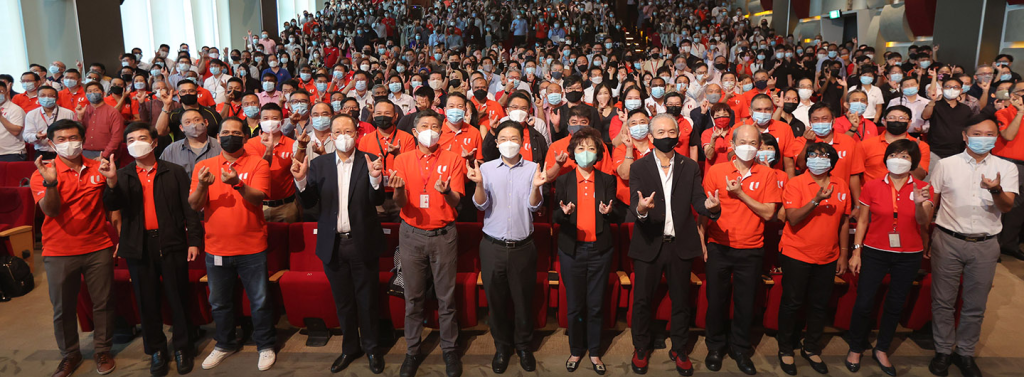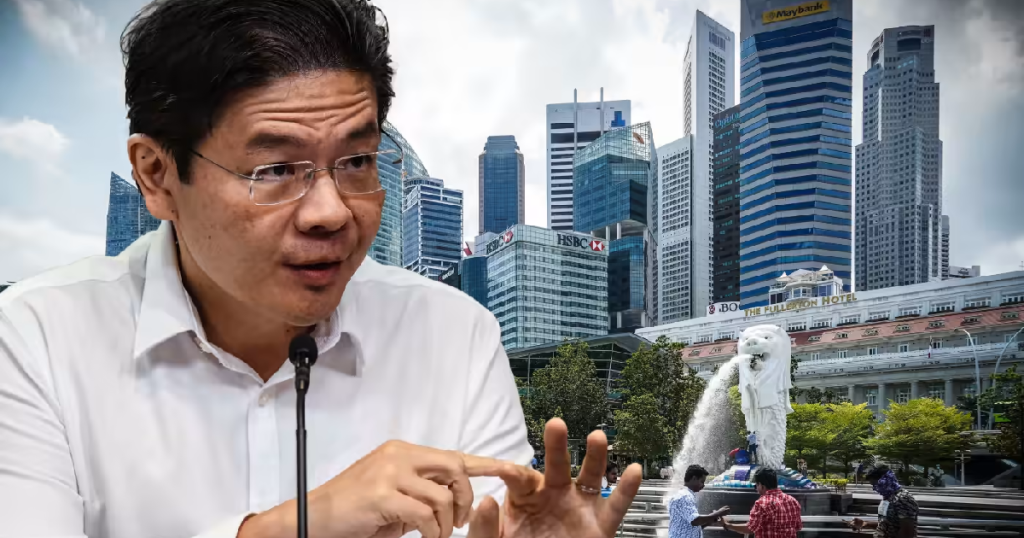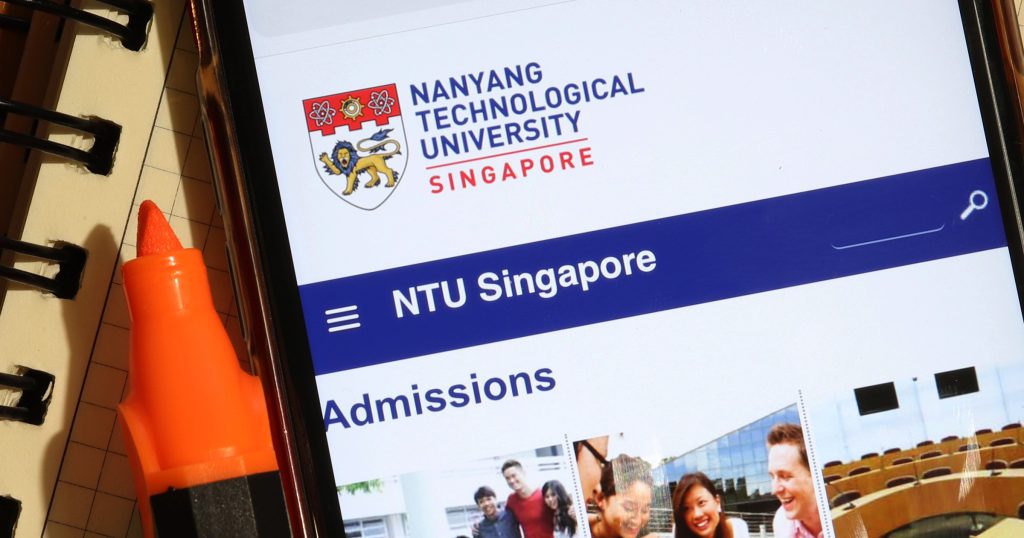1. Govt to extend Enterprise Financing Scheme, Energy Efficient Grant till March 2024
Deputy Prime Minister and Minister for Finance Lawrence Wong has announced that the current enhancements to the Enterprise Financing Scheme and the Energy Efficiency Grant will be extended for another year, until March 31 2024, in order to help businesses deal with tighter financial conditions and higher energy prices
The Energy Efficiency Grant will help businesses in food services, food manufacturing, and retail sectors invest in energy efficiency, and reduce the impact of higher electricity prices
The Enterprise Financing Scheme includes a 70 per cent government risk-share for trade loans, an enhanced maximum quantum for trade and working capital loans, and project loans to support domestic construction projects.
2. Government is introducing a new Enterprise Innovation Scheme
In a bid to encourage innovation in Singapore, the government is putting in place a new Enterprise Innovation Scheme, and will enhance tax deductions for five key areas.
- Research and Development carried out in Singapore
- Registration of intellectual property such as patents, trademarks, and designs
- Acquisition and licensing of intellectual property rights, for taxpayers with less then S$500 million in revenue
- Innovation with polytechnics and Institute of Technical Education (ITE)
- Training via courses approved by Skillsfuture Singapore and aligned to the Skills Framework
Tax deductions from these activities will increase from 250 per cent to 400 per cent, with qualifying expenditure capped at S$400,000 for each activity, except for Innovation with polytechnics and ITE. For this activity, the cap will be S$50,000
This is expected to provide tax savings of nearly 70 per cent of their investment.
3. Support for SMEs to be increased
S$150 million is also to be set aside for the SME Co-Investment Fund. The fund itself is intended to help promising startups from Singapore get the funding support that they need.
An additional S$300 million of private investments will also be used to support these SMEs.
Under this programme, the government provides additional funding for startups in conjunction with private sector investments, and thus far, around 60 local companies have received investments from this fund.
According to DPM Wong, the total revenues of these companies have since more than doubled, with more than half of them developing new capabilities or expanding beyond Singapore.
These results were obtained with the investment of S$1 billion from the government into Heliconia Capital, an investment firm that focuses on growth-oriented Singapore companies and a subsidiary of Temasek Holdings.
For smaller, unprofitable businesses, they will also have the option to convert 20 per cent of their total qualifying expenditure per year of assessment into a cash payout of up to S$20,000.
The effort is an attempt to support firms that have yet to turn profitable, or those who do not have sufficient profits to maximise the benefits from tax deductions. Smaller businesses will also be able to defray the costs of their innovation activities, even if they pay little to no taxes.
4. Implementation BEPS 2.0
A global minimum effective tax rate of 15 per cent will be introduced for large multinational enterprise (MNE) groups here.
Singapore’s corporate tax system will be affected by international taxation rules such as the Global Anti-Base Erosion rules under Pillar 2 of the Base Erosion and Profit Shifting initiative (BEPS 2.0).
DPM Wong intends to implement Pillar 2 from 2025 by implementing a Domestic Top-up Tax, which will top up MNE groups’ effective tax rate in Singapore to 15 per cent.
The Government will monitor international developments and adjust its implementation timeline if there are delays to BEPS 2.0. It will continue to engage companies and give them sufficient notices ahead of any changes to tax rules or schemes.
The Government will also review and update its suite of industry development schemes to ensure Singapore remains competitive in attracting and retaining investments.
5. National Productivity Fund to be topped up
Singapore will top up the National Productivity Fund with S$4 billion, in order to continue attracting high quality investments from multinational enterprises
The fund is used to help Singaporeans and local businesses increase productivity, including in reskilling and training workers.
The big update announced during Budget 2023 is that the scope of the NPF will now be expanded to include investment promotion, which will include supporting companies to build new capabilities, add greater value to domestic ecosystems, and upskill workers.
Ultimately, these efforts will lead to better-paying jobs for Singaporeans, according to DPM Wong.
6. Greater support for low-income, displaced workers, and seniors
The government has also indicated that it is looking into social mobility and helping more vulnerable groups in Singapore.
Accordingly, the government is looking into how they can uplift the wages of lower-income citizens, and sustaining real income growth for workers in the middle.
They are also examining how they can support workers, especially those who are displaced, with a better system of upskilling and reskilling to help them find better jobs.
In addition, the government is also looking at how to better look after the growing number of seniors, in areas of medical needs, retirement needs, and their care and living arrangements.
Social mobility is also on the table, with the government looking into how they can provide everyone with opportunities to uplift themselves.
The Forward Singapore exercise, which was launched in June 2022, has seen more than 14 thousand Singaporeans participate in engagement sessions on a wide range of topics, and the exercise will be competed in the second half of 2023.

DPM Wong also pointed out that while the government will make changes and intervene when there is a need to do so, additional spending must be funded and sustainable, so that it does not impact future generations.
7. New ‘jobs-skills integrators’ to optimise training and job placement for workers
“There is a need for labour market intermediaries to optimise training and job placement”, says DPM Wong.
“Many workers do not know what training programmes to go for, and employers may be unfamiliar with the landscape.”
As such, the government will appoint intermediaries, known as jobs-skills integrators, to work with industry, training, and employment facilition partners.
Their role will be to engage enterprises to understand the manpower and skills gaps that the sector faces, and work with training providers to update existing training programmes or develop new ones that will close the skills gap.
They will also work closely with employment facilitation agencies, get buy-ins from industry partners and unions, identify individuals with the right aptitude, and ensure that training translates into better employment and earnings prospects.
For a start, these intermediaries will be trialled in precision engineering, retail, and wholesale trade sectors, where there are higher concentrations of mature workers and SMEs.
8. Employment support for seniors who wish to continue working extended to 2025
The Senior Employment Credit will also be extended to 2025, says DPM Wong.
The scheme provides wage support to employers, who receive wage offsets for hiring Singaporean senior workers aged 55 and above, and earning up to S$4000 a month.
The Part-time Re-employment Grant will also be extended to 2025 to encourage employers to offer part-time re-employment, other flexible work arrangements, and structured career planning to senior workers.
Lower wage workers will continue to get career progression and wage support through the Progressive Wage Model, which was extended in 2022 too more sectors and occupations.
9. S$2.4 billion boost to Progressive Wage Scheme
A scheme in which the Government co-funds wage increases for lower-wage workers will be topped up by $2.4 billion, says DPM Wong.
This means in 2023, it will continue to co-fund up to 75 per cent of pay increases for workers earning a gross wage of up to $2,500 a month, tapering down over time till 2026. A lower co-funding ratio will apply to those earning above $2,500 and up to $3,000.
10. Working mothers can claim fixed tax relief of up to S$12,000
Some schemes to help parents with the cost of raising children will also be adjusted.
For Singaporean children born or adopted on or after Jan 1, 2024, the Working Mother’s Child Relief will be changed from a percentage of the mother’s earned income to a fixed dollar relief.
With this change, eligible working mothers will be able to claim S$8000 in tax relief for her first child, S$10,000 for her second child, and S$12,000 for her third and subsequent child.
According to DPM Wong, this will provide more government support to eligible lower-and -middle-income working mothers.
11. Government-paid paternity leave and unpaid infant care to increase
Government-paid paternity leave will also be doubled from two weeks to four, for eligible working fathers of Singaporean children born on or after Jan 1, 2024.

For a start, the extra two weeks will be voluntary, so employers which are ready to grant the additional leave will be reimbursed by the Government. This would also provide employers with some time to adjust.
But DPM Wong also stated that this change would be reviewed, and be made mandatory in due course.
Unpaid infant care leave for each parent in their child’s first two years will also be doubled to 12 days per year, and all parents of Singaporean children will be eligible for additional time off if they have worked with their employer for a continuous period of at least three months.
The change will apply from Jan 1, 2024, for eligible working parents with children aged under two.
Taken together, leave enhancements will increase parental leave for a working couple from 22 weeks to 26 weeks in their child’s first year, according to DPM Wong.
12. Government to provide support for lower-income platform workers
The Government will align the CPF contribution rates of platform workers and companies with those of employees and employers over five years as part of strengthening protections of such workers, says DPM Wong.

Platform workers who are younger than 30 when the changes are implemented will be required to make increased CPF contributions, and these changes will help platform workers raise their total earnings and strengthen their housing and retirement adequacy, though it will affect the take-home pay of these workers.
To cushion this impact, the government will provide CPF transition support to lower-income platform workers who see an increase in their contribution rates for the first four years after implementation.
13. Minimum monthly payout for seniors on CPF Retirement Sum Scheme upped to S$350
The Government will continue with the next increase in CPF contribution rates in 2024 for senior workers aged 55 to 70 from Jan 1, 2024, to enhance retirement adequacy.
This is in line with the recommendations of the Tripartite Workgroup on Older Workers, says DPM Wong.
As with previous increases, employers will be provided with the CPF Transition Offset to deal with business costs arising from this increase, says Mr Wong.
The minimum CPF monthly payout for seniors on the Retirement Sum Scheme will also be raised to $350 a month, he says.
14. CPF monthly salary ceiling to be raised from S$6,000 to S$8,000 by 2026
The CPF monthly salary ceiling will be raised to help middle-income Singaporeans save more for their retirement, says DPM Wong.
To keep pace with rising salaries, the monthly salary ceiling will be raised from $6,000 to $8,000 in 2026, he says.
From September 2023, the increases will be phased over four years to allow employers and employees to adjust to the changes.
15.Salaries for social service sector to be raised
The review of the social service sector salary benchmarks is complete, says DPM Wong.
The Government will work with agencies to raise salaries to better attract and retain talent, he adds.
Featured Image Credit: Nikkei Asia










